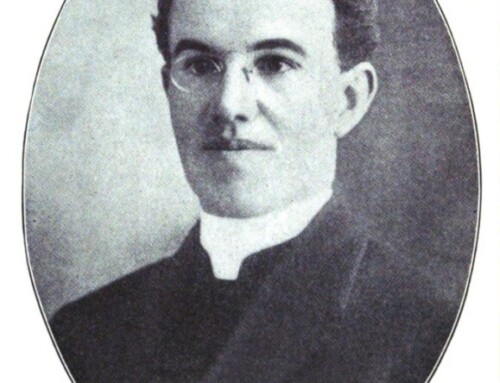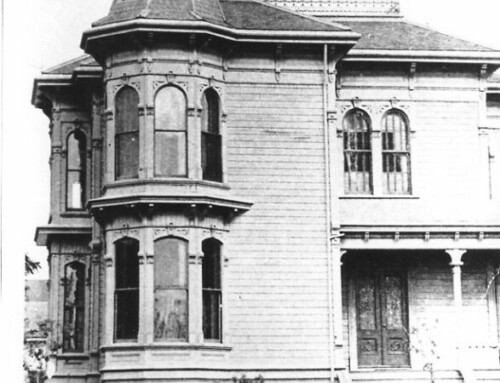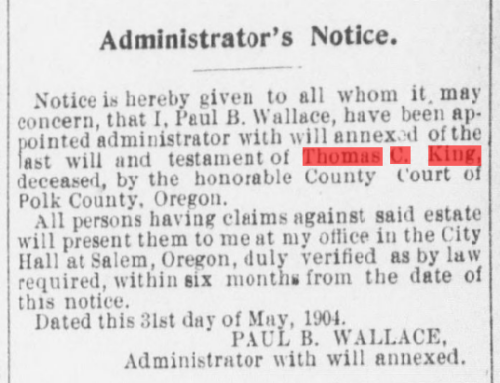by Richard van Pelt, WWI Correspondent
CORPSES HEAPED IN WINDROWS
Germans Charge in Face of Hurricane of Shrapnel and Rifle Balls
THEIR RECKLESSNESS FAIRLY INCREDIBLE
Terrific Fighting Raged All Day and Slaughter Was Simply Appalling
Paris, Aug. 26. – Terrific fighting raged today all along France’s eastern frontier. It was heaviest at Meubeuge, Givet, Montmedy and just west of Luneville. The slaughter was frightful, the general staff reported.
The German crown prince was said to be in command of the kaiser’s soldiers.
They were charging desperately in the face of a hurricane of shrapnel and rifle balls.
In places their corpses were piled breast high.
Rumors of war off the Oregon coast:
WAR BREAKS OUT OFF OREGON
Mayor of North Bend Hears Jap and German Warships in Fierce Battle –
Or Hears Something, Anyway
Marshfield, Ore., Aug. 26. – That he had heard heavy firing at sea and was confident that a naval battle was on between the four foreign war ships reported off Coos Bay, was the declaration of L. J. Simpson, mayor of North Bend, Ore., by long distance telephone from his summer home at Shore Acres, four miles south of the Coos Bay bar, this afternoon.
It is believed that the Japanese cruiser Idzumo, the German cruisers Leipsic and Nurnberg, which were reported cruising off Port Orford, have met. The firing has been in progress for several hours, Mayor Simpson states, and the reports are frequent and repeated.
This was one of a number of reported encounters off the Pacific coast. Associated Press correspondent J. B. Nelson later wrote that “A man at Marshfield, Ore., hearing his heart thumping at night, reported that he had heard the firing of guns at sea, and the natural inference was that German and British fleets were in battle.”
Though the war was still in its first month, the British War Minister, Lord Kitchener hinted to Parliament that “the present year may still be in progress three years hence.” His comment was greeted with some skepticism, despite the authority he brought to the position. Soldiers argued that industry could not provide modern ammunition in the amounts necessary and financiers declared it would be impossible to find the money to keep armies in the field for more than a short time. Politicians feared that if the war lasted that long, revolution would break out. “There were muttering of
Local families felt the effects of war, headline, article, and letter published in the Capital Journal relates:
Inside View of War Given
By Letters From Old Home
From the homes of Germans who are deeply affected by the war that is now raging in Europe comes a letter written by Carl Voget, a brother of Fred and Julius Voget of this city, which gives an intimate view of how the conflict is touching the homes and lives of the Germans, and tells of the attitude of the Germans toward the state of affairs. It is replete with keen lights on happenings that reveal actual conditions better than what simmers through past censors.
Carl Voget, the writer, spent three years in this city, and is well-known to Salem people. Bertha Voget, who also lived here and who reside on East State Street, returned to the fatherland some time ago and married a retired capitalist. The letter tells how her husband had to leave her side to join his regiment. Their home is an Emden, a seaport in East Friesland. Carl Voget is a minister of the German Reformed church and offered his services to the army. His wife is an American girl.
The first letter is from the father of the Voget brothers, the second from Carl Voget, and the other excerpts from letters from their sisters.
The Father Writes.
Weener, East Friesland, Germany, August 5.
My Beloved Sons:
Now even England has declared war on us and Italy proves a false ally. This, then, sets almost all of Europe against us, but God in heaven will not permit that such in infamous plot should succeed. Without any cause whatever, Russia and France have attacked us. England has taken their part. Many tears have been shed, these days and nights, for there are families which had to give up from three to five boys. Many women with one to nine and sometimes more children, had to give up their husbands and supporters. Old men are shedding tears and weeping women and mothers can be seen everywhere.
Since last Sunday the trains are leaving daily with reserves. Hundreds of horses were requisitioned in this neighborhood, to be shipped direct to the French line to complete the teams for the troop trains and artillery. It will be again a bloody month of August, same as in 1870, but we trust that we will conquer against every enemy.
Germans Are Confident.
A confidential spirit seems to run throughout Germany. People of all ages and classes are going enthusiastically into the fight and innumerable volunteers are reporting constantly, young and old, even soldiers who have seen service 44 years ago in the Franco-Prussian war, are offering their services with the request that they be permitted to fight in the foremost ranks. Our Ferdinand had to report to his regiment at Newmunster on the 13th of this month. Frederick Franz on the 10th, and Gerhardt on the 21st (all brothers-in-laws). Yea, it will require much blood and money and we will need some good luck. Our Carl offered his services as chaplain or in any capacity in which they might be able to use him. Emma (his wife, born in America) is quite composed, for the treacherous and conspiring manner in which our enemies have attacked us has even caused her blood to boil. Even Bartleman (an American traveling through Europe), who just returned from Russia and has been a few days with us, is quite confident that Germany will win out in this fight. He doesn’t have a very high opinion of the Russian soldiers. He thinks that our army is far superior to the Russian army and the fact that they have so many millions more men does not make much difference, as the machine guns can “now do multitudes” in a very short time.
I hope that we will not make the mistake the Boers did, and take more prisoners than we can guard and feed. Our enemies shall and must learn to fear us and reap the consequences that are connected with such treacherous and unscrupulous an undertaking. Many prayers are going up for our emperor. How painful it must be for him to be betrayed so shamefully by his old former friends, Russia and England! May heaven give him wisdom and guidance, and efficient advisers and generals!
It is reported that old General Haeseler, a pious and very efficient general who has been at the head of the army corps in Metz for several years, will receive the general command of the army against France. We presume that it will be Germany’s aim to first break the backbone of the French and take defensive only against Russia as long as we are occupied in France, but when you receive this letter the die will have long been cast and thousands will already have been killed our wounded.
Mail Sent To Holland.
We will mail this letter in Holland, as no mail can go out through German ports. As long as this condition exists, I suggest that you address your letters to our friends in Holland, who will see to it that the mail is properly forwarded to us.
Uncle Bertus will also have to furnish his quota to this bloody struggle. His son, Rudolph, who had such an elaborate and brilliant wedding on the first of July, is commander of a torpedo boat and will soon have to engage the enemy in the North sea. Bert and Fritz also have to go at once. Whether Timo and Julius, our eludes sister’s boys will be taken by the examining physicians in Schwerin has not been determined yet, but there is no doubt about this, as very few are exempted on account of youth or physical unfitness in these days.
“It is said that recruits are drilled only for fourteen days and then are at once forwarded to the front to fill in the gaps made by the bullets of the enemy. I believe Germany will have soon five million men in the field, but it takes more than horses and warriors in this unequal conflict: heaven’s help will be needed. Do not forget to remember us in these hard and perilous days.
Your father.
Carl Writes
My Beloved Brothers:
Just a few lines to let you know how we feel in these days in which a great crisis is befalling our beloved Fatherland. We are having good courage. It will be a hard struggle and exceedingly great may be the sacrifices that will have to be made by us, but we feel that our cause is just and that God is on our side. Circumstances may look as though it is a lost cause, but we trust in One stronger than armies. Already we are allowed to realize many good effects of the present trouble upon the minds of the people. A wonderful enthusiasm has taken hold upon the whole nation. All party strife seems to have been forgotten. It had been prophesied that the Socialists would refuse service in the army and rise in revolution at the outbreak of the war, but these have been proven false reports. There is a wonderful spirit of unity and love pervading the sole population and a confidence in the wisdom and ability of our government that is unlimited. Now at once the kaiser is the most loved man in Germany. People who used to criticize him without mercy, now seem to realize that he has been not so far out of the right way after all.
Preparation Was Careful
It is wonderful to see how carefully everything has been prepared and how, in spite of the intense excitement that naturally exists everywhere, the complicated machinery of seining all these troops to the frontier works quietly and steadily. Also the fear of God seems to have come upon the people. No alcohol is allowed to be given to the soldiers who leave. The bartenders at the railway stations dare not sell any strong drink to our men. We realize that our men must be sober in order to be able to cope with the coming emergencies. Germany is not going half drunk to the battlefield.
We just hear a few hours ago that England also had declared war against us. You may imagine how deeply moved the hearts of the people are, but there seems to be a gray determination to not lose courage, but to hold out to the last.
Import Scarcely Realized
Excerpts from letters received from his sisters:
“In these days many happy anticipations have been destroyed, many a heart has been crushed and many tender threads of love and friendship have been suddenly severed. I realize this well. We may write this, read it and still not realize the momentous import of such words. Who realizes the anguish and knows the extent of same in the many formerly happy homes throughout the continent?
“Right close to our house a strong cable has been put across the public highway in order that no automobile of the enemy may race by unnoticed. Even people on bicycles are stopped by the soldier who is on guard and are compelled to identify themselves. You may laugh at this, but even our innocent looking sister, Miss Helen, as she returned from Uncle Julius’ at Holthusen, was stopped by the guard and was not permitted to pass until an acquaintance of her’s had identified her. Even her open, honest face and kind words were of no avail, for now even the most unsuspecting ladies have sometimes proven themselves to be spies. so far, I have had no trouble getting through everywhere. Sometimes I can hardly realize the serious actuality of things, and think it a dream, but as soon as I go out and look around, I realize, however, that things are only too true.”
Calamity Came Suddenly
Another sister:
“Germany is at war! Yea, this astonishing and alarming fact must be believed by us, for the calamity broke over us so awful suddenly. You will most probably know all about the present developments from the newspapers, as the American papers can take an impartial stand and will most probably report all news without showing partiality to any of the contending nations.
“The thunder storm broke over us so unexpectedly! It will be a bloody, tremendous conflict, as Germany has so many enemies on all sides to contend with. It almost seems that they are going to crush us, but God in heaven is all-powerful and can bring us out victorious.
“Spies are going through the land by the dozens. Almost daily some are arrested and shot to death. Even in quiet Moehlenwarft, a small village a few miles from here, one has been caught. He confessed before his death that if he had been successful he would have become a rich man, but Fate willed it different for him. Oh, it is cruel to see the departure of fathers, sons and sweethearts! Who has seen it cannot help but feel that a sword has pierced his soul. Every day I see a train pull out of the station, which is right close to our house, filled with soldiers and reserves; it cuts me to the heart core. All faces are solemn and serious wherever you come. Many of the young men had to leave at once, being picked up wherever they happened to be. Some even had to go in the shirt sleeves, and hardly had time to bid their loved ones good-bye.
Every House Pays Tribute
“In every house some one is missing. One mother had to give up seven of her boys. Another one had to give up three, another one four, and so on. Many have aged fast in these days on account of grief and sorrow. Cornelia, whose husband had to join his regiment on the 10th, wrote that the departure of the regiment of Sharp Shooters was an impressive sight and one that will not be easily forgotten.
“No news is received from the soldiers in the field. No one knows where they are. No word has come from the cousins who are on the frontier with their different regiments. do not forget to remember us in these days, to remember your Fatherland, its soldiers and inhabitants. Great enthusiasm and determination reign amongst the populace. Everybody is determined to do his duty, and we trust and pray that everything will end well.”
These letters are an apt time to recap what has happened to date. Having fought two wars against Germany, we in the United States have laid blame for the war solely in Germany’s court. The assassinations in Sarajevo provided the belligerents openings to resolve outstanding issues unrelated to any dispute between Serbia and Austria-Hungary. The decision-making process comes across as distinctly dysfunctional. To recap:
Austria-Hungary would not have presented Serbia with an ultimatum they knew and expected to be rejected without the backing and support of Germany.
Austria knew that Russia would come to the support of Serbia, and for that reason needed German backing as Austria lacked the resources to go to war against both Serbia and Russia.
Germany was the only belligerent prepared for war, but knew that her people would not support war if Germany acted unilaterally. It was critical for public support that there be the appearance that Germany was reacting to rather than initiating war against Russia and France over a dispute involving Austria and Serbia.
France, still stung by her defeat at the hands of Prussia in the Franco-Prussian War, created alliances with Russia and Great Britain as a way of constraining Germany.
Public opinion in Great Britain did not support war, but would not tolerate any German incursion into Belgium. Britain and France had earlier agreed to split the responsibilities of their respective navies. Britain agreed to protect the French Atlantic coast and in return, the French navy would protect British assets in the Mediterranean.
Russia’s goals were to protect her interests in the Balkans and Serbia. Still recovering from the Russo-Japanese War, the inflexible nature of her mobilization plans were predicated on going to war against Germany.
What took place was a continent-wide game of reverse chicken. Each party awaited mobilization by the other. In the calibrations of mobilization, delaying a day could be fatal. As war loomed, the fingers on the triggers were the military chiefs of staff, not foreign secretaries of prime ministers. For a century historians have been puzzling over the “what ifs” and one lesson is that each belligerent had only one plan, there was no “Plan B.”







Leave A Comment